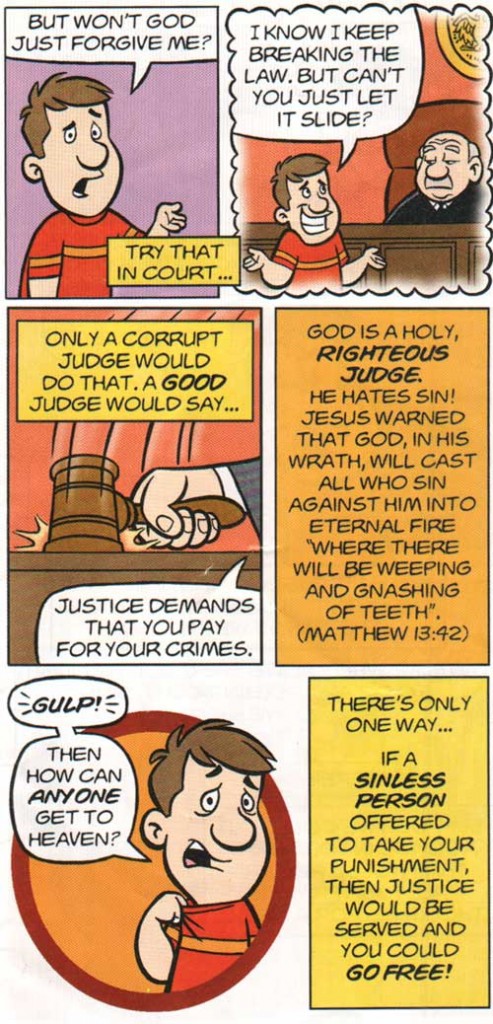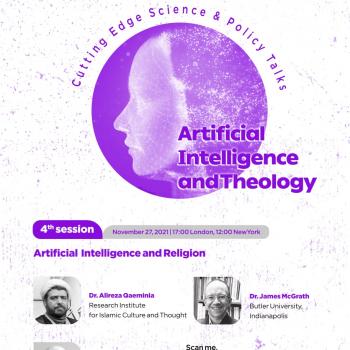PZ Myers posted an entry on his blog with the title “Odious Christianity.” He is commenting on a tract that came his way which includes the following cartoon:

After sharing it, he writes:
Whoa, hang on there. How is justice served by punishing an innocent? So, with this judge, if I get a parking ticket I could get out of it by bringing in a baby and chopping off a finger, and announcing that there, I’ve more than paid off my crime now? Or do I need to get someone who loves me very much to selflessly volunteer to mutilate themselves in order to get me off?
It seems to me that if I were to accept such an offer, it would make me even more of a disgusting monster than just someone who let a parking meter expire. I don’t think justice is served by allowing others to take responsibility for my crimes — yet somehow a fundamental precept of Christianity is the doctrine of the scapegoat.
So, sorry, I reject the core belief, so I must reject the whole of Christianity. Joshua, get down off that tree! You’re doing me no favors!
PZ’s assessment of the underlying thinking behind this model of the atonement as fundamentally unjust, indeed monstrous, is absolutely correct. And it is unfortunate that it has become so widespread in certain (particularly Evangelical) circles that it seems to some that to reject this model of the atonement is to reject Christianity. But of course, that isn’t the case, and this way of interpreting the significance of Jesus’ death – and its relation to human forgiveness – is a relatively recent phenomenon in the history of Christianity.
Atonement theories are, historically speaking, a result of Christians trying to make sense of the crucifixion of Jesus. Since there has never been a single creed stating a particular view of the cross as orthodox, on this topic more than any other, Christians should feel they have a lot of freedom to reflect and rethink. And I would hope that all would agree that any view which says that God is just, and yet simultaneously claims that God behaves unjustly, is a self-contradictory and irreverent mess which ought to be rethought.
I wonder how many readers of this blog have a particular view of the crucifixion of Jesus, how many interpret it in terms of a theory of atonement, and in the case of the latter, which of the various views of atonement you find most helpful.
















